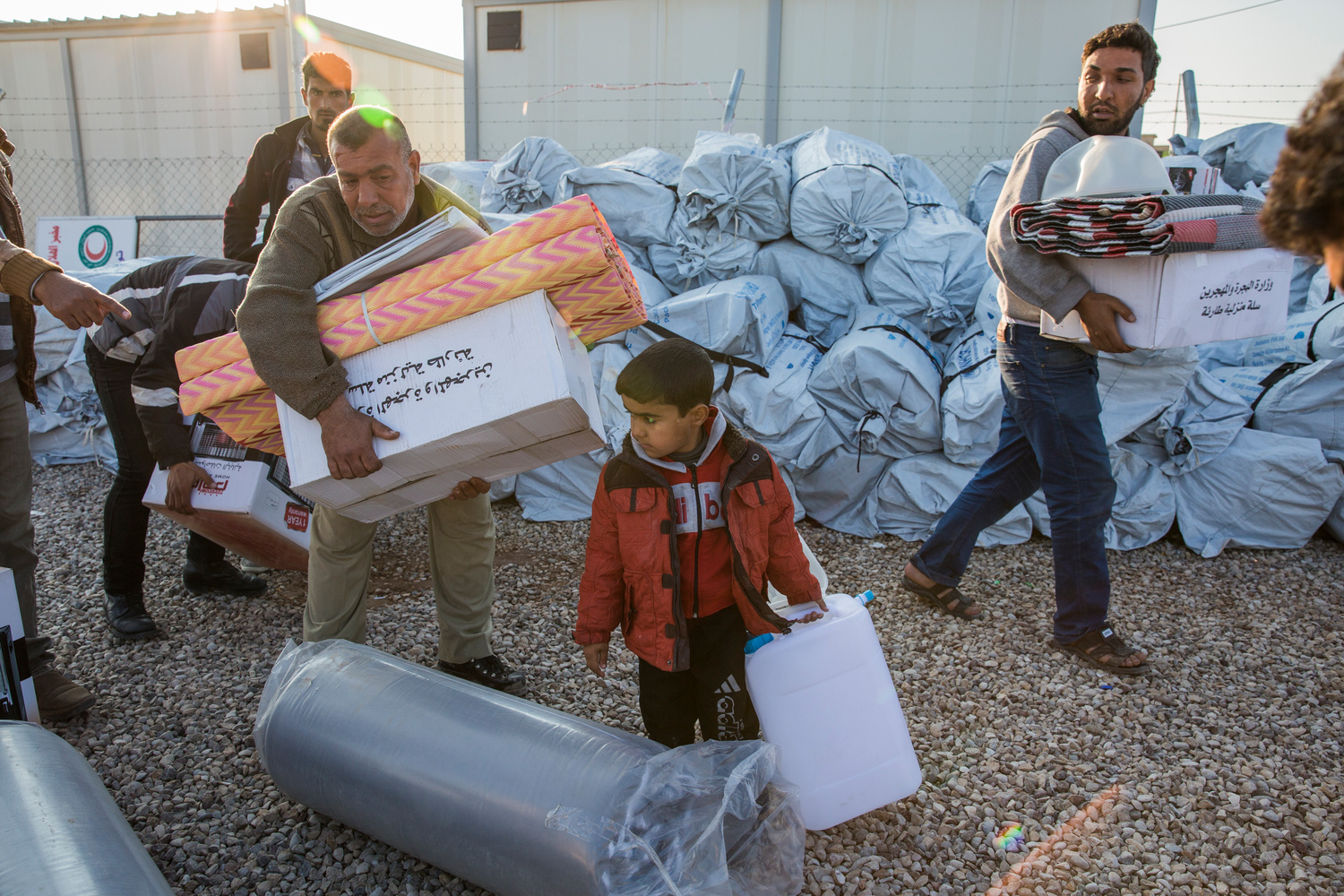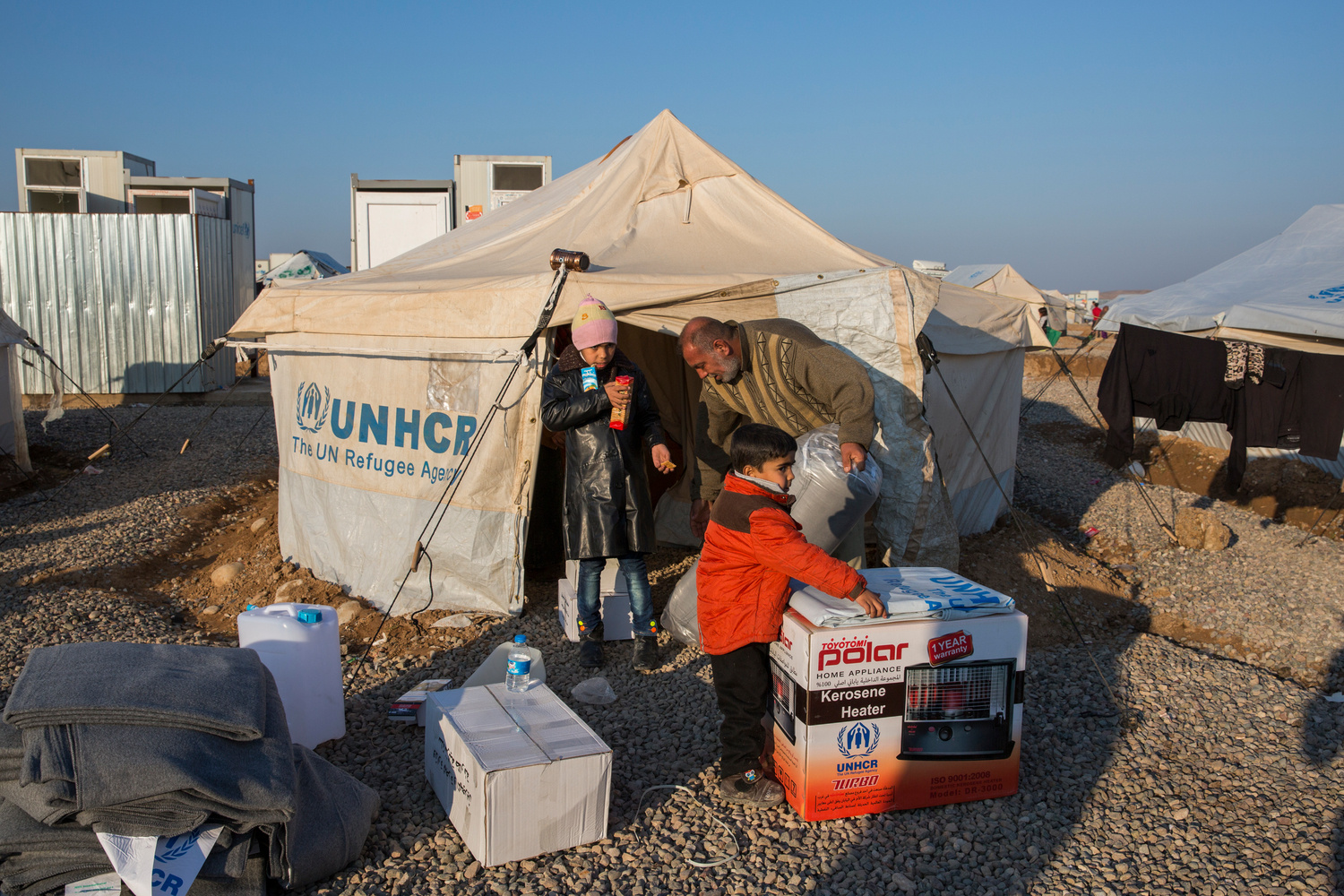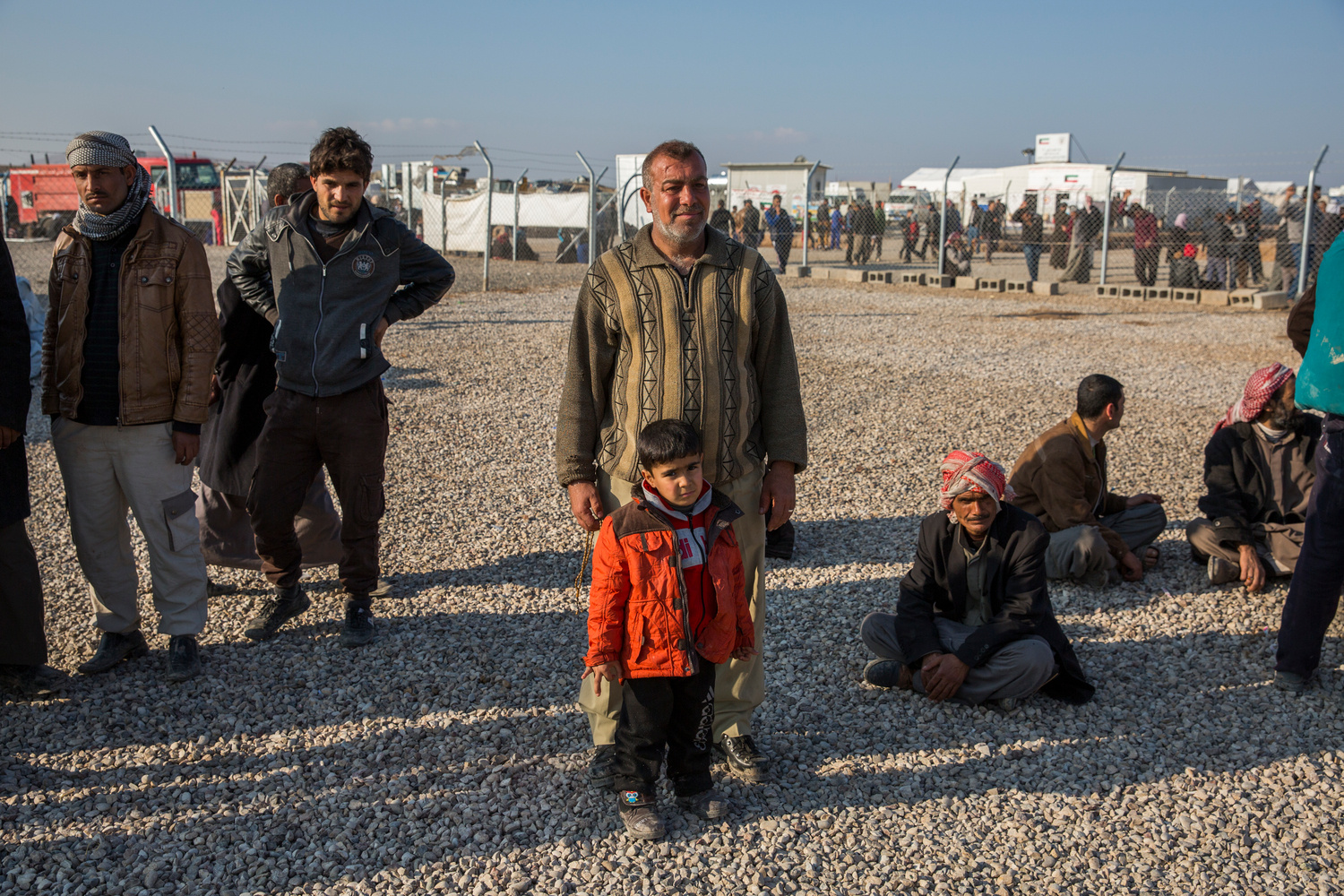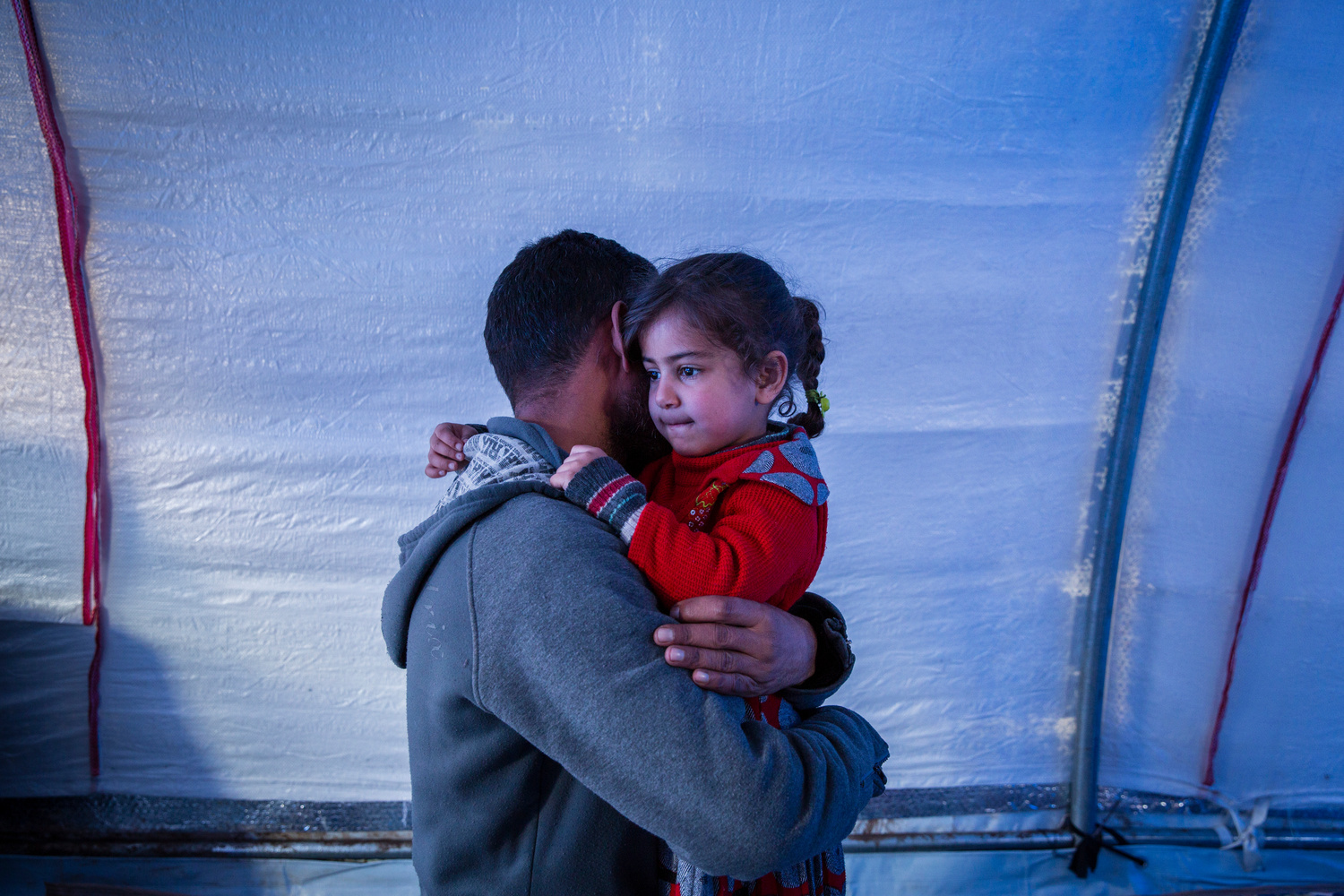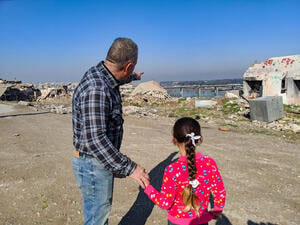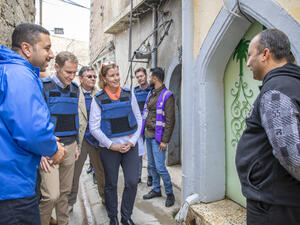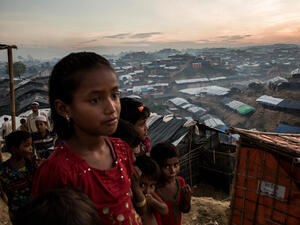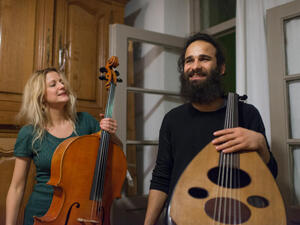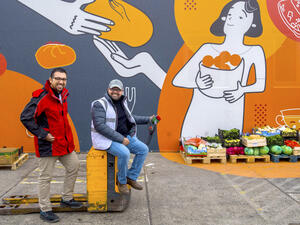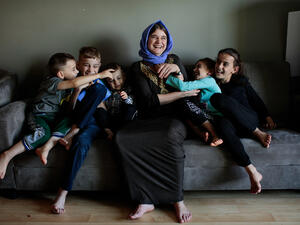Fleeing west Mosul by boat to the shelter of a UNHCR camp
Fleeing west Mosul by boat to the shelter of a UNHCR camp
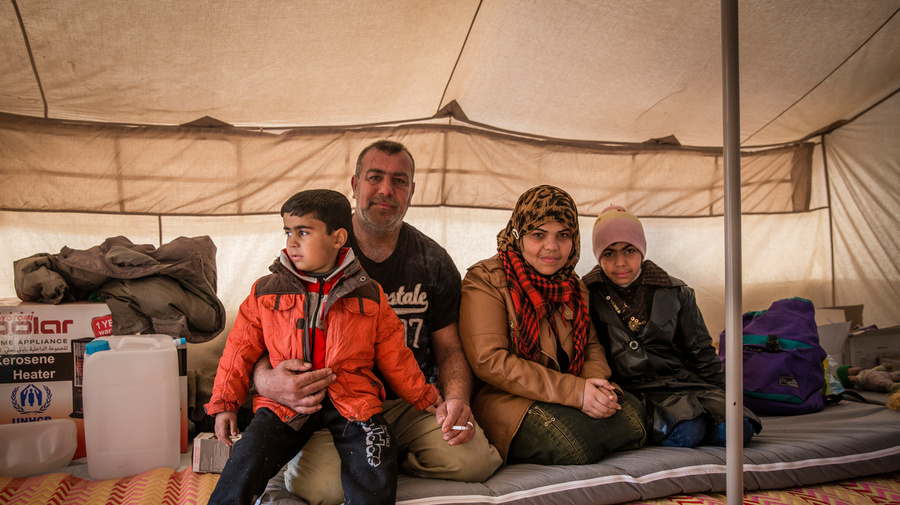
Haytham* and his family in their tent at UNHCR's Hasansham camp.
KHAZER CAMP, Iraq – After sundown at the end of January, Haytham,* 44, hurried to the banks of the Tigris River where he set about breaking the lock on a small fishing boat. He was fleeing hardship and danger in extremist-held west Mosul, knowing that if he were caught he would be killed.
Breaking the chain, Haytham scrambled into the boat and then told his wife and children to lie down to avoid being shot at as he rowed them, crouched over, across the broad, flat river under the cover of darkness.
As they passed the halfway point, armed groups began shooting at them. Suddenly, incoming rounds pierced the boat and it began to take on water. Haytham rowed as hard as he could and somehow managed to reach the shore before the boat sank. “I thought we were going to die,” he said.
Iraqi forces on the east bank initially raised their weapons, but then rushed to protect them when they saw it was a family. The family sheltered in eastern Mosul, but came under mortar fire there too. When Haytham’s son was scratched by a piece of flying debris, they decided to find shelter in Hasansham camp, run by UNHCR, the UN Refugee Agency, in the Kurdistan Region of Iraq.
“I thought we were going to die."
“I am so happy I could cry,” he said, speaking to UNHCR in his tent after arriving at the camp. Putting their ordeal behind them, the family was given a tent vacated by another internally displaced family who had returned to their original homes in the government-held east of the city.
UNHCR is supporting camps containing most of the 153,714 people displaced since the battle to retake Mosul – a city of more than one million people – began on October 17. UNHCR has assisted almost 9,000 families with emergency items inside the newly-accessible areas of the city.
It is estimated there are more than 750,000 people still trapped in densely-populated western Mosul, where the next phase of the battle will focus. UNHCR is coordinating plans, together with other agencies and partners, to respond to an anticipated wave of fresh displacement.
“While many families from eastern Mosul are returning to newly-accessible areas, we are bracing for a potential large exodus coming out from the west,” said UNHCR’s Representative in Iraq, Bruno Geddo. “Dealing simultaneously with newly displaced families and returnees will test our ability to respond to the limit.”
“At the same time, we remain seriously concerned about the ability of civilians in the west to access safety and assistance once the next phase in the offensive gets underway,” he added.
West Mosul is almost completely sealed off by an array of forces, and civilians in the densely packed old city are running out of food supplies. One kilo of onions now costs more than US$10; a kilo of sugar is US$18; a single egg costs US$1; and 20 liters of cooking gas costs US$80, according to multiple residents contacted in extremist held areas.
These prices depend on availability. Many shops are empty and families have no money to pay. Families are burning their furniture as firewood due to the lack of cooking gas and they are mostly eating potatoes, which can be grown locally and are still relatively cheap, at less than US$1 per kilo.
There is only one hospital still operating on the west side of the city, said residents living there, and airstrikes are increasing as the offensive to recapture that side of the city is expected imminently. “We want the planes to hit us because we can’t continue living this miserable life,” said one woman who lives in west Mosul with her two grandchildren.
“We want the planes to hit us because we can’t continue living this miserable life."
It was just after midnight when Mohammed,* 42, crept out of the bushes and clambered aboard a small wooden fishing boat with his wife and three daughters. He had spent the last two-and-a-half years hiding from the extremists because of his work with the Iraqi security forces.
“I took the risk of crossing the river because of my family. For me, I didn't care anymore. I knew they would find and kill me eventually,” he said.
The current on the Tigris River was strong on the freezing January night they made their escape, and Mohammed struggled to prevent the small boat from being swept downstream.
“It only took around 10 minutes to reach the other side but it felt like a year. I was so afraid,” he said, speaking in the government-run Khazer M1 camp in the Kurdistan Region of Iraq, where he has finally found sanctuary.
Mohammed and his family hid on the east side until daybreak and then moved quickly to his sister’s house. Soon after he heard the sounds of fighting and large vehicles outside – the Iraqi security forces had arrived.
*Names changed for protection reasons



